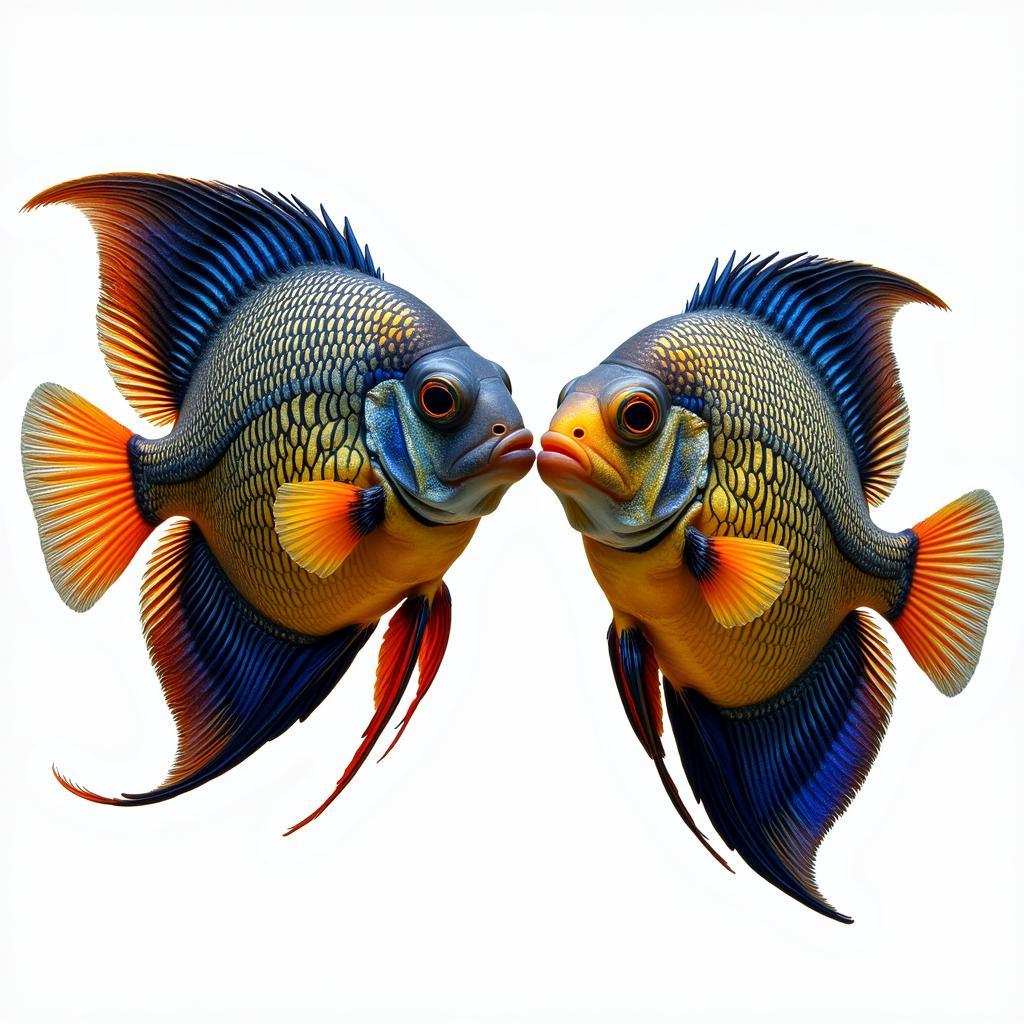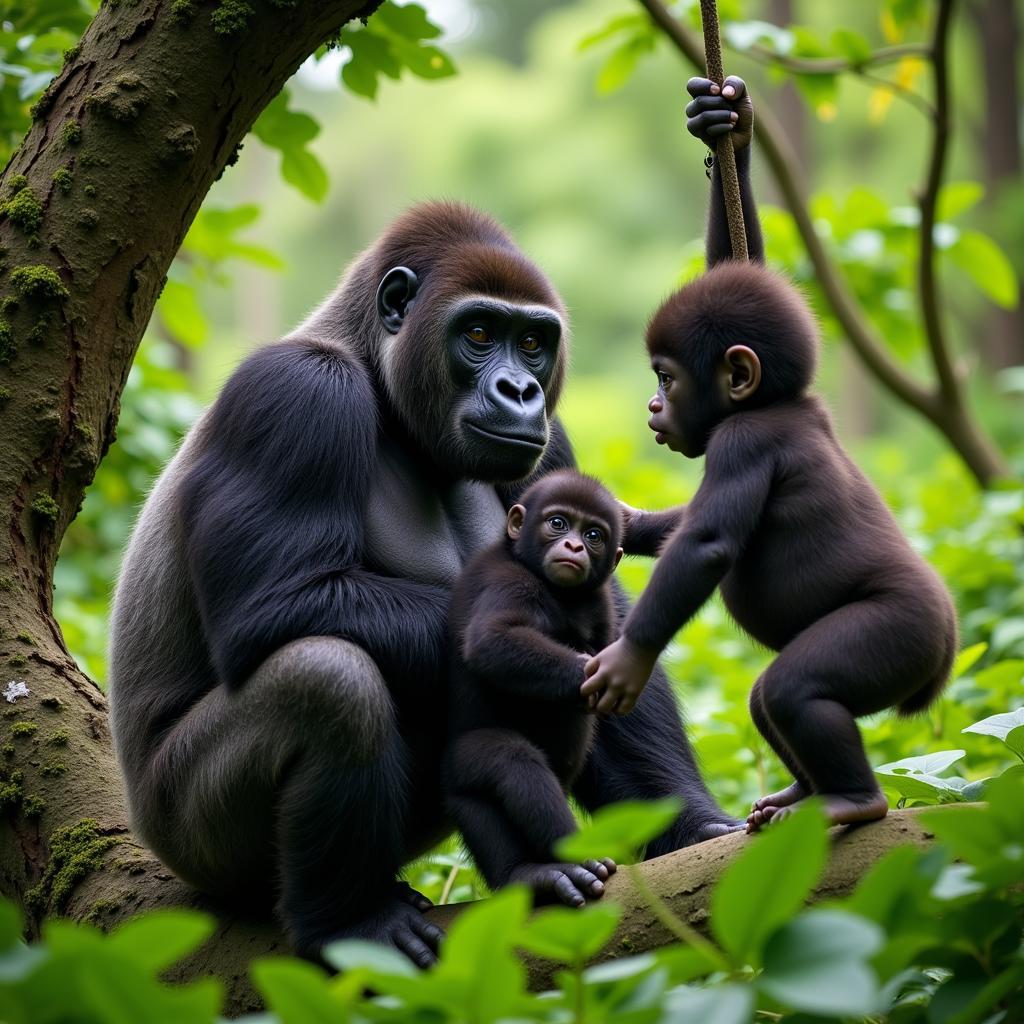African Cichlid Breeding Water Parameters
Breeding African cichlids can be a rewarding experience, but it’s essential to understand the appropriate water parameters to ensure successful breeding. These vibrant fish have specific needs, and replicating their natural habitat as closely as possible is key to encouraging them to spawn.
Water Parameters: The Foundation of Breeding Success
Just like humans, African cichlids thrive in specific environments. While they are generally hardy fish, paying close attention to water parameters is crucial, especially when you’re aiming for them to breed. Let’s delve into the key parameters:
Temperature: Turning Up the Heat
The ideal temperature range for breeding most African cichlid species is between 78-82°F (25-28°C). Maintaining this temperature range encourages spawning behavior and supports the healthy development of eggs and fry.
Tip: Invest in a reliable aquarium heater with a built-in thermostat to maintain a consistent temperature.
pH Level: Finding the Right Balance
African cichlids typically prefer alkaline water with a pH between 7.8 and 8.5. This slightly higher pH level mimics their natural habitat in the African Rift Lakes. Regular water changes and using a quality pH buffer can help maintain this range.
Hardness: A Necessary Component
Water hardness refers to the concentration of dissolved minerals. African cichlids thrive in hard water, ideally with a general hardness (GH) between 10-18 dGH. You can increase water hardness by using commercially available cichlid buffers or adding crushed coral to your filtration system.
Ammonia, Nitrite, and Nitrate: The Silent Killers
Maintaining excellent water quality is crucial for the health of your cichlids, especially during breeding. Like all fish, African cichlids are sensitive to ammonia, nitrite, and high levels of nitrate.
- Ammonia and Nitrite: These should always be kept at 0 ppm (parts per million).
- Nitrate: Aim to keep nitrate levels below 20 ppm.
Regular water changes, at least 25% per week, and using a good quality biological filter will help keep these harmful compounds in check.
 African cichlids exhibiting spawning behavior
African cichlids exhibiting spawning behavior
Why Water Parameters Matter for Breeding
You might wonder why these parameters are so crucial for breeding. Well, it all comes down to mimicking their natural environment to trigger their natural instincts.
“In the wild,” explains Dr. Joseph Mwangalu, a leading aquarist specializing in African cichlids, “environmental cues like temperature fluctuations and water chemistry changes often signal the start of the breeding season.”
By replicating these cues in the home aquarium, you create an environment where your cichlids feel comfortable enough to breed.
The Importance of Stability
Maintaining stable water parameters is as crucial as achieving the correct levels. Sudden fluctuations can stress your fish, discouraging breeding and even leading to health issues.
Remember: Test your water parameters regularly, ideally weekly, to ensure stability.
Beyond Water Parameters: Other Factors
While water parameters are fundamental, other factors also play a role in successful African cichlid breeding:
- Diet: Offer a varied diet of high-quality cichlid pellets, supplemented with live or frozen foods like brine shrimp and bloodworms.
- Tank Size: A larger tank (30 gallons or more) is generally recommended for breeding, providing ample space for the breeding pair and their offspring.
- Aquascaping: Create a natural-looking environment with caves, rocks, and plants to provide hiding places and territories for the fish.
Troubleshooting Breeding Issues
If your African cichlids aren’t breeding, despite seemingly ideal water parameters, consider these factors:
- Stress: Overcrowding, aggressive tank mates, or an unstable environment can deter breeding.
- Gender Ratio: Ensure you have a healthy mix of males and females.
- Age: Cichlids reach sexual maturity at different ages depending on the species, generally between 12-18 months.
Conclusion: Setting the Stage for Cichlid Romance
Creating the perfect breeding environment for your African cichlids involves a multifaceted approach. While achieving the correct water parameters is crucial, remember to consider other factors like diet, tank size, and the overall well-being of your fish. By replicating their natural habitat and providing optimal care, you enhance their chances of successful breeding and enjoy the wonder of witnessing the cichlid life cycle in your own aquarium. For more insights into African cichlid care, explore our articles on specific species like the African butterfly cichlid or learn about suitable African jewel fish tank mates.
Frequently Asked Questions about African Cichlid Breeding Water Parameters
1. How often should I check my water parameters when breeding African cichlids?
It’s recommended to check your water parameters at least once a week, especially during the breeding period. This helps you monitor any fluctuations and make necessary adjustments promptly.
2. Can I use tap water for my African cichlid breeding tank?
Tap water often contains chlorine and chloramine, which are harmful to fish. It’s crucial to treat tap water with a dechlorinator before adding it to your aquarium.
3. What should I do if my water parameters are not within the ideal range?
If your water parameters are off, don’t panic! Start by doing a partial water change (25-50%) using treated water. Then, investigate the root cause of the imbalance. It could be related to your filtration system, overfeeding, or insufficient water changes.
4. How can I make my African cichlid water harder?
You can increase water hardness by using commercially available cichlid buffers that are specifically designed to raise GH and KH (carbonate hardness). Adding crushed coral to your filter or substrate can also help gradually increase hardness.
5. My cichlids are not breeding even with correct water parameters. What could be the issue?
While correct water parameters are essential, other factors like stress, diet, tank size, and the presence of aggressive tank mates can also affect breeding. Ensure you are providing a suitable overall environment for your cichlids.
Need help with your African cichlid breeding journey? Don’t hesitate to reach out. Contact us at +255768904061, email us at kaka.mag@gmail.com, or visit us at Mbarali DC Mawindi, Kangaga, Tanzania. Our 24/7 customer support team is ready to assist you. You can also find more information on African chichlid fish tupes or browse our recommended African cichlid book for expert guidance. Are your cichlids a different species? We have information on a variety of African cichlid species, too!



